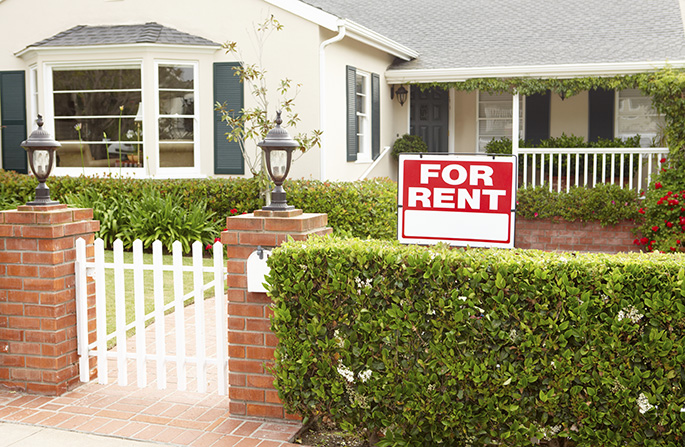Median weekly rents in six regions have skyrocketed by 10 per cent or more over the last year, Trade Me Property says.
The property website’s latest rental figures shows the national median rent remained at $620 a week in September for the fourth consecutive month.
That's a 7.8 per cent increase on the same time last year, when the national median in Trade Me rental listings was $575.
Trade Me Property sales director Gavin Lloyd says $45 a week is a significant increase in weekly expenses for those renting, and adds up to $2340 a year.
But rents in some regions rose more sharply over the last year.
Northland had the biggest increase, up 14.9 per cent to a median of $580 a week. It means tenants are being asked to pay $75 more a week than last year.
Marlborough and Auckland followed, with median weekly rents climbing 14 per cent to $570 and 11.7 per cent to $670 respectively.
Rents in Taranaki, Bay of Plenty and Canterbury were up 11.1 per cent, 10.2 per cent and 10 per cent to $600, $650, and $550. Wellington rents were up 6.7 per cent to $640.
Gavin says Trade Me’s figures show demand for rental properties currently outweigh supply.
Rental listings on-site were down 16 per cent annually in September, but there had been an increase in demand, with enquiries up 11 per cent.
But the biggest gap between supply and demand was in the Auckland region, with listings down 26 per cent and enquiries up 28 per cnet.
Auckland rents were still climbing, with three to four-bedroom rental properties hitting a new record of $770 a week in September, he says.
“Tenants are being asked to pay 11.8 per cent more for an apartment, 10 per cent more for a unit and 4.4 per cent more for a townhouse than at the same time last year.
“Auckland prices are creating significant strain on renters in an environment where the cost of living is front of mind for many.”
It would be very unlikely to see landlords drop prices anytime soon, he says.
“This is creating a really tight market, and tenants will have to reach further into their pockets if they’re looking to move.”
Trade Me’s rental price data only includes the price landlords asked in their listing, not the amount that tenants end up paying.
But Stats NZ’s latest figures had national annual rent inflation, as measured by the flow measure, which covered new agreements, up 6.2 per cent year-on-year.



1 comment
The Master
Posted on 12-10-2023 12:50 | By Ian Stevenson
There is, obviously, a massive shortage of housing, hence rents rise sharply as a 100% predictable consequence.
Perhaps one should look at why? The reasons include: -
1 Not enough houses being build, no trades available to do so and major supply chain issues to complete the builds.
2 In Tauranga for example, where are the sections/land that is affordable and available to buy? Maybe there is a really serious issue with the development/consenting process?
3 Government policy and law changes to date have added massive costs to landlords, hence many have sold out so less houses available to rent.
All the above is obvious, the outcome that follows is equally so.
Leave a Comment
You must be logged in to make a comment.